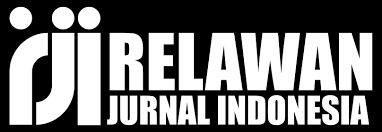Implementasi Faktor-faktor Berpengaruh Terkait Efisiensi dan Kredibilitas Bank umum Syariah di Indonesia
DOI:
https://doi.org/10.61722/jiem.v1i4.367Abstract
Sharia banks are financial institutions that don’t actually rely on interest to function. In other words, Sharia Bank is a financial institution whose main business is providing financing and other services in payment traffic and money circulation whose operations are adjusted to the principles of Islamic law. Sharia Bank itself, commonly known as an Interest-Free Bank, is a financial/banking institution whose operations and products are developed based on the Al-Quran and the Hadith of the Prophet SAW. Islamic banks do their businesses without using the interest system. The problem of the contradiction between interest and usury can be resolved alternatively by using the existence of sharia banks/Islamic banks. The Idea of “sharia banking” generally proposes an economic structure that is in harmony
Keywords: Islamic Banking, Profit Sharing, Islamic Economics.
References
Andrianto, & Firmansyah, M. A. (2019). Manajemen Bank Syariah ( Implementasi Teori dan Praktek ). CV. Penerbit Qiara Media, 536.
At-Tariqi, A. A. H. (2004). Ekonomi Islam, Prinsip, Dasar dan Tujuan. Magistra Insania Press, 45.
Hidayat, Y. R., & Surahman, M. (2017). Analisis Pencapaian Tujuan Bank Syariah Sesuai Uu No 21 Tahun 2008. Amwaluna: Jurnal Ekonomi Dan Keuangan Syariah, 1(1), 34–50. https://doi.org/10.29313/amwaluna.v1i1.1996
Huda, N., & Nasution, M. E. (2014). Current Issue Lembaga Keuangan Syariah. Kencana, 3.
NOFIANSYAH, D. (2021). JURNAL JUMAT : INDONESIA RANKING 5 DALAM EKONOMI SYARIAH GLOBAL/BERITA/INDEKSBERITA. BPM STEBIS IBM.
Nurnasrina, & Putra, P. A. (2018). Manajemen Pembiayaan Bank Syariah (Nurlaili (ed.)). Cahaya Firdaus.
Sudarsono, H. (2003). Bank dan Lembaga Keuangan Syari’ah: Deskripsi dan Ilustrasi. Ekonisia, 97.
Sulthon, M., & Watamwil. (1933). Problematik Ekonomi Dunia Modern dan Solusi Islam. 18–46.
Syufaat. (2011). Proses Berdirinya Bank Syariah. SUHUF, Vol. 23, No. 1, Mei 2011: 41 - 55, 41–55.
Todaro, M. P. (1977). Economic Development In The Third World, London: Long Man. Journal of Development Economics.
Pasal 1 angka 8 Undang-Undang Nomor 21 tahun 2008 tentang Perbankan Syariah (Lembaran Negara Republik Indonesia Tahun 2008 Nomor 94, Tambahan Lembaran Negara Republik Indonesia Nomor 4867).
Pasal 1 angka 9 Undang-Undang Nomor 21 tahun 2008 tentang Perbankan Syariah (Lembaran Negara Republik Indonesia Tahun 2008 Nomor 94, Tambahan Lembaran Negara Republik Indonesia Nomor 4867).
Downloads
Published
Issue
Section
License
Copyright (c) 2023 JURNAL ILMIAH EKONOMI DAN MANAJEMEN

This work is licensed under a Creative Commons Attribution-ShareAlike 4.0 International License.












